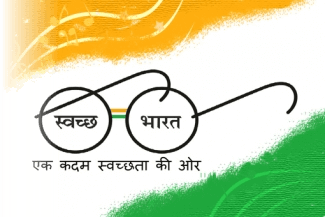The Institute
Navodaya Vidyalaya Scheme is a novel scheme to establish pace-setting institutions specifically for the rural talented children. For achieving its avowed objectives the most important tool available with the Samiti is its human resources in the form of ‘Teachers’. It is therefore necessary that the teachers are continuously provided institutional support to enrich and empower their professional competence and are made aware of the latest innovations in the field of education, curricular reforms and information technology. Teachers for Navodaya Vidyalayas are recruited through open competition at all India level. In- service training courses for all the teachers are being organised by drawing resources from within and outside NVS system for promotion of professional growth both in terms of content as well as methodology. These teachers have to undergo at least one 21 days' In-service course in every five years not only to get eligibility to be granted senior or selection scales but also to maintain the pace-setting character of NVS. Apart from these long duration (21 days') in-service training courses, short duration induction, orientation courses, seminars, workshops etc. are also organised as a part of teachers' training programmes. In order to help the teachers to reach a high level of attainment through innovation and experimentation, training of teachers is an important aspect of teacher skill up gradation. Emphasis is laid on modern educational technology, appropriate inter personal relationship, the right kind of academic environment, value orientation, interaction and participatory approach in teaching-learning process in the Vidyalayas. To meet its training requirements, Samiti has established National Navodaya Leadership Institute at NVS HQ, Noida and Navodaya Leadership Institutes at Ranga Reddy, Goa, Udaipur, Puri, Kamrup & Ammalsan.
Navodaya Leadership Institute, Udaipur is established in 2018 and presently is functioning at its newly constructed building in the campus of JNV, Mavli, Udaipur at State Highway number-9.Because of its scenic landscape dotted with beautiful lakes, the place has earned the moniker "Lake City" This Institute is a premium institute of training of NVS not only catering to the training needs but also providing leadership, guidance and support to Navodaya employees who have undergone training at one or the other occasion in this institute.
It is needless to mention here that this institute is in its infancy and has got a very brief history but is striving hard to create a history of its own by providing quality training which can be meaningful in the real sense of the term.
The maiden training at this institute was in the month of April 2018 and proved successful.
Trainees here remain engaged in meaningful activities throughout the day from meditation to group work for their personal and professional growth and upliftment.
Mission
To become a self sustaining proactive and leading institute offering quality capacity building (Training, Research and Advisory) service in the field of education to teachers & other non teaching staff of JNVs in today's competitive environment and to empower the NVS employees to deal unexpected situations in this unique system.
Aim
To achieve organizational objectives through training of personnel and to provide them with development opportunity.
Objectives of Navodaya Leadership Institutes
The trainings provided in this Institute have the following Objectives:
- To enrich and equip the trainees with content and pedagogical content knowledge, effective skills to manage and monitor the system efficiently with transparancy .
- To acquaint the trainees with Teaching skills, learning strategies and efficiency to do the work with utmost accuracy.
- To acquaint the trainees with latest developments/ changes which are incorporated in the syllabi/ exam pattern and the system of NVS and central Govt. as a whole.
- To develop an understanding among the trainees on the emerging trends in teaching-learning and office procedures and integration of technology and emerging trends.
- To demonstrate and discuss how classroom processes / activities can be organized to promote effective learning (through pair work, group work, assignment, project work, etc.)
- To enable the teachers to reflect on materials (including textbooks) for teaching and problems faced in the classroom and to discuss ways and means to maximize learning through them and to enable the non teaching staff to reflect on the problems, loopholes and shortcomings in carrying out the work and to discuss the ways and means to minimize them by giving the updated first hand information regarding upcoming softwares and application of technology for online transactions and converting the traditional office into E-Office.
- To equip the teachers with the skill to develop materials for everyday classroom use and to explore ways for moving beyond the textbook and to equip the non-teaching staff with skills and updated technical and technology based knowledge and skills for improving the efficiency and transparancy in the system.
- To discuss the problems and issues related to continuous assessment in education, and monitoring and to reflect on the present practices in the system and to understand how to implement Continuous and Comprehensive Assessment (CCE) in the classroom as well as in the system.
- To obtain feedback on the orientation / training through interaction and SWOT (strength, weakness, opportunities and threats) analysis.
- To suggest ways for continuous professional development by creating online groups, reading forum, blogs, mentoring, journal entries and reflection.
- To equip the trainees with skills to handle and manage their work effectively and skilfully by remaining updated about the emerging trends and complications in today's scenario.



